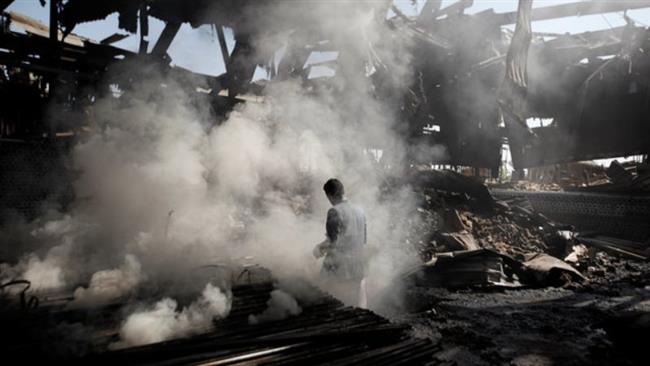
RNA - High Commissioner for Human Rights Zeid Ra’ad al-Hussein, along with a number of EU states, had demanded an international inquiry into Saudi rights violations in Yemen.
However, the 47-member UN rights council approved by consensus a watered-down version of the text, drafted by Sudan following days of behind-the-scenes negotiations in Geneva.
The resolution calls on the UN to instruct its investigators “to complement the investigatory work of the national commission” while documenting human rights abuses by all sides in Yemen.
Rights activists were disappointed as was the UN rights chief.
Salma Amer, the UN advocacy officer at the Cairo Institute for Human Rights Studies, said the resolution “puts Saudi Arabia’s desire for impunity above the need to protect the people of Yemen.”
“For now Saudi and its allies, like the US, have shown they can still block efforts at the UN to ensure accountability for war crimes in Yemen,” she added.
John Fisher, head of the Geneva office of Human Rights Watch, denounced Riyadh’s “aggressive lobbying against a full international investigation.” He called on the council to suspend Saudi membership and block its re-election.
Last year, the Saudi regime used its position on the Human Rights Council to hinder the establishment of an independent international investigation.
Sayed Ahmed Alwadaei, the director of advocacy at the Bahrain Institute for Rights and Democracy, said the Thursday resolution is an indication of “another failure by the top human rights body which shamefully accepts the membership of Saudi Arabia."
He described the kingdom "one of the most brutal and cruel repressive states in the world" which the UN allows to dictate resolutions.
Save the Children said the resolution will fail "to establish all the facts around reported violations of international human rights and humanitarian law, which are destroying the lives of Yemeni children and their families.”
Yemen has been under almost daily airstrikes by Saudi Arabia since March 2015. International sources put the death toll from the aggression at almost 10,000.
According to the United Nations, Saudi airstrikes are to blame for 60 percent of civilian deaths in the country.
In June, the UN raised controversy by dropping Saudi Arabia from its annual blacklist of child killers, only a week after blacklisting the monarchy for overwhelmingly violating children’s rights in Yemen.
The decision came after Saudi Arabia and its allies threatened to cut off funding to UN programs if the body kept the kingdom on the blacklist.
847/940